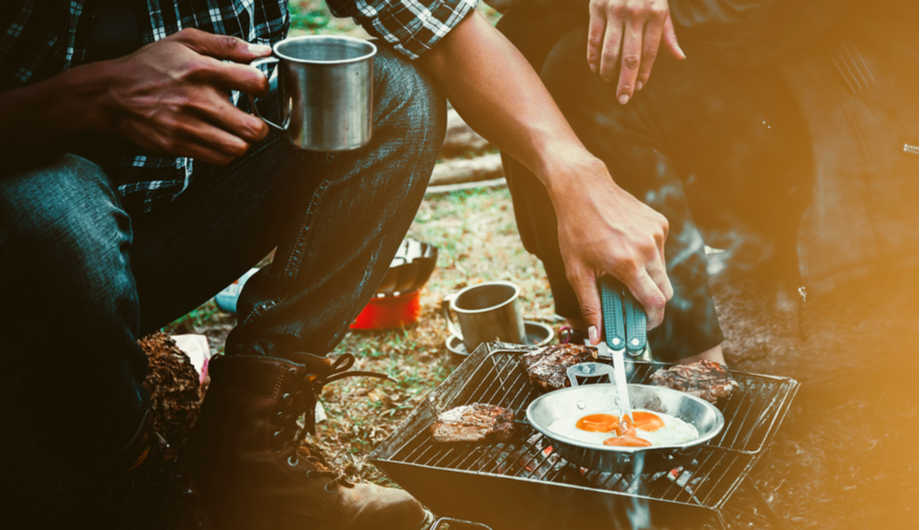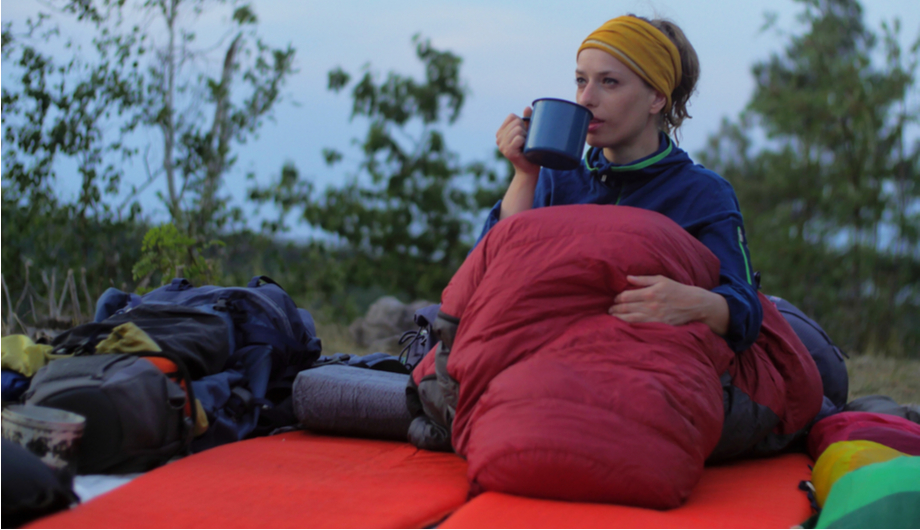Camping Beginners: All you need to know
Having all the knowledge necessary when you first start going camping is essentially impossible, but there are a few basic things you absolutely need to know first – here is everything you need to know to get started camping.
There is nothing like an adventure filled camping holiday, the thrill of sleeping outside and being at one with nature. Camping is the ultimate way to vacation for an iconic man, who loves a challenge and is looking to get away from the hustle and bustle of the big city.
I always try to head out of the city at least twice a year, just to spend a few days hidden among the trees and away from the stress of 21st-century living. On such trips, I stick to the basics; bush camping mostly, with no access to hot water or electricity; it makes for a refreshing break. I have also tried my hand at longer camping trips, in particular, a two-week road trip that I once did up the East Coast of Australia which involved camping everywhere from roadside truck stops to full resort style campsites. Over the years, I have become somewhat of a camping expert.
If you have never been camping before it can feel like quite a daunting task, you are used to checking into a hotel and having everything that you need at your disposal. With camping you must do it all yourself, if you forget to bring your sleeping bag, then you will have to enjoy sleeping on the floor because with true camping there is no one there to save the day, this is what makes camping such a thrilling experience. The good news is that I am here to share everything that you need to know in order to have a successful and fun first camping trip.
If you’ve never been camping now is the time to try something new, so grab your tent and get ready for the most iconic holiday of your life.

Below are my top tips for surviving your first camping trip:
Know your campsite
Try to plan ahead and make sure that all of your campsites are booked in advance. This is not always possible, for example on my East Coast Road Trip we never knew how far we would be driving in a day and so opted to book our campsite in person when we arrived at our destination for the night. While we never had to spend a night parked up on the side of the road, we did encounter a number of problems along the way. The most annoying was turning up at our chosen campsite late in the afternoon only to find that they were fully booked, and we either had to pay extra for a more luxurious camping experience with facilities re we really didn’t need, or we would be forced to spend the night at a much cheaper but pretty grubby site further out of town.
Another reason for booking in advance, especially for long trips, is so that you know exactly where you're staying and what that campsite provides. Facilities vary drastically across campsites; if you're planning a more rural bush style camping trip, you might not even have access to a toilet, while if you are staying at a beachside camping resort, you should expect to find everything from a swimming pool, to a fully equipped kitchen. Knowing what you're campsite offers in advance means that you can pack accordingly, there is no point transporting a large camping stove if your campsite has a full kitchen.

Surviving a tent’s temperamental climate
Waking up in a tent is an experience, as it doesn’t matter how much you enjoy the heat or how prepared you think you are, it is a pain that you cannot fully understand until you have woken up with the sun shining through your tent cooking you alive. The temperature changes through the night are perhaps one of the worst things about camping and something you need to be prepared for. You might be fooled into thinking that just because it is summer and you are camping in a hot climate that you won’t get cold during the night, this could not be further from the truth. Even camping in the height of an Australian summer I would regularly wake up during the night shivering, it makes sense really the temperature drops drastically during the night, and you only have a thin layer of material protecting you from the outside world. After a few nights of feeling like I was going to freeze to death I decided to try wrapping up warm, yes it felt slightly strange given that it was around 30 degrees as I was getting ready for bed, but it worked like a dream I slept through the night without even noticing the cold. Then, the sun started to rise at around, and suddenly my tent started to heat up like nothing I had ever felt before, it is a difficult feeling to explain but the air within the tent starts to feel like it is running out of oxygen and mixed with the intense heat makes you want to jump out of your sleeping bag, even at 4 am.
So, you might be wondering how to avoid this terrible and early morning wakeup call every day. The truth is that there is no real way around it, yes maybe if you have the money and splash out on the most expensive of tents with more breathable material it might reduce the effects, but in reality it’s just what happens when you decide to spend the night in a zipped up piece of material.
I did manage to pick up a few tips and tricks throughout my road trip that make the mornings a little more bearable. Firstly, make sure you sleep in layers, thin shorts, a light t-shirt, a hoodie, and fluffy socks became my go-to sleeping outfit. The reason that this helps is that it keeps you warm during the night but the second you wake up you can throw the socks and hoodie to one side, providing you with an instant cooling effect even it’s just for few minutes. Secondly, consider leaving your tent unzipped a few inches, this, of course, depends on where you are camping; how safe you feel and whether you are at risk of being eaten alive by bugs during the night.

Ensure your belongings are safe
It is essential to consider how you are going to keep your valuables safe while camping, there are no hotels safes or hostel lockers where you can just throw your belongings. If you are camping with a car this is slightly less of a concern, anything that could potentially be stolen or a wild animal might feel inclined to run off with, can be safely locked away in your car. During our camping road trip, we slept across three tents and so came up with a system that the car keys would be kept underneath the driver's tent, this way whoever woke up first in the morning could easily access their stuff.
If you are camping without car security, it can become a bit more of an issue, especially on a long trip where you are going to be leaving the campsite during the day and have to trust your fellow campers not to steal from your tent. A good trick is to have a few padlocks with you so that you can lock up your tent during the day, while this isn't going to stop the most determined of thieves it is highly unlike that anyone is going to go to all the effort of cutting your tent open just to see what you have inside. Depending on where you are camping and how safe you feel you might also want to lock your tent from the inside while you are asleep.

How to survive the showers
Depending on how many nights you are camping for you are going to have to face the showers at some point, which is assuming that your campsite has showers. You're showering experience is going to depend on where you are camping; if you are bush camping, for example, the most that you can expect is a bucket shower which literally involves filling a bucket with cold water and standing as it slowly tips over your head. The reality is that unless you are staying at a fully managed campsite washing in rivers or even not at all is going to be the reality. If you know in advance that you will be washing in a nearby river, make sure to pack some waterproof shoes to prevent your feet from being cut open.

Campsite Cooking
Plan ahead when it comes to food, there is nothing worse than turning up at a campsite in the early evening only to find that the local supermarket has already closed for the day and you have absolutely nothing to eat. If you’re like me and planning a spontaneous trip where you don’t know exactly where you will be staying each night, make sure to pack a portable gas stove, a few pots and cutlery that way you will be able to throw a meal together even at the most basic of campsites.
If you are staying at a campsite with kitchen access you are of course not going to need things like a gas stove, however, it is always a good idea to have your own bowls, cutlery, and cooking pots as they might not be provided and even if they have, the odds of them being clean is highly unlikely.
If you bear in mind these few simple tips it will make your first camping trips less stressful, leaving you time to enjoy your trip.
Let us know in the comments some of your top camping tips for beginners.
user rating :
4.00 stars (4 votes)
Sam is a writer from the UK with a strange fixation on making as many things from scratch as possible. Whether it's brewing beer or making hot sauce, Sam is determined to try and make everything, as well as writing or making videos about it as he goes.